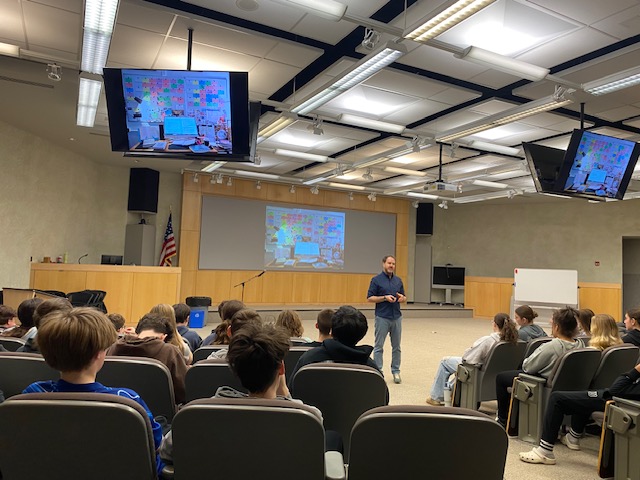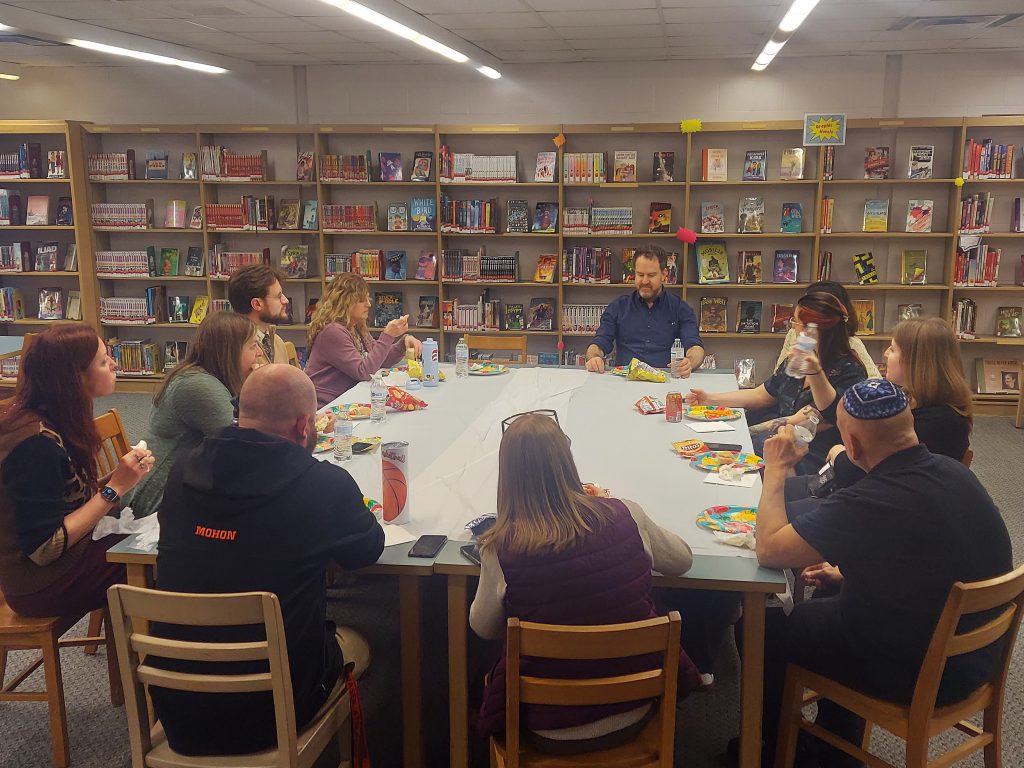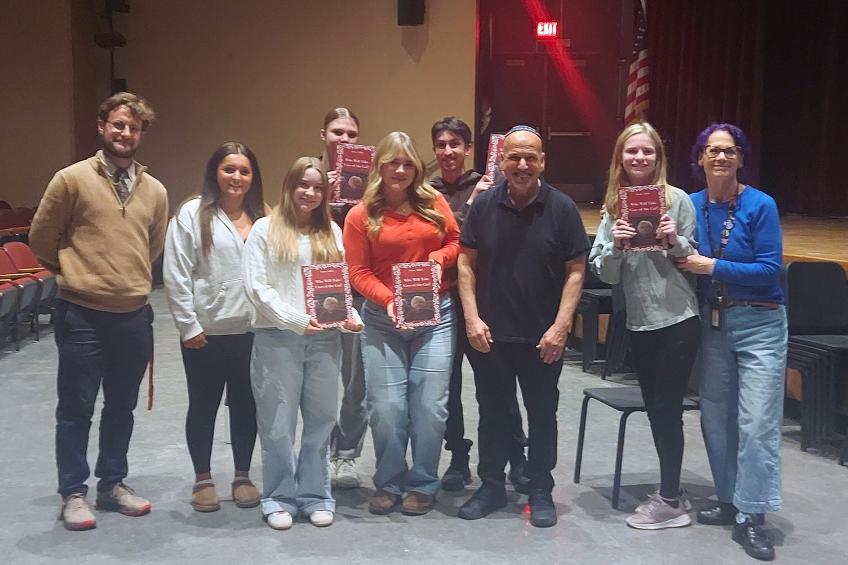On Tuesday, Mohonasen observed Holocaust Remembrance Day through a series of impactful and educational presentations, thanks in part to support from the Mohonasen Foundation Grant.
The day began with a moving presentation from Arnon Adler, the son of Holocaust survivors. Mr. Adler shared the story of his father’s experience during the Holocaust, speaking from his father’s perspective to convey the emotional and physical challenges of surviving such an unimaginable time.
Following Mr. Adler’s presentation, students heard from Marion Blumenthal Lazan, a Holocaust survivor, who shared her personal story virtually. Her account of survival was deeply moving, and she ended her session by answering students’ questions.
Later in the day, author Steve Sheinkin visited with students to discuss his books and writing process. Middle school students gathered in the LGI, where Mr. Sheinkin spoke about “Bomb: The Race to Build and Steal the World’s Most Dangerous Weapon” and its graphic novel adaptation. He shared insights into his research methods and collaboration with illustrator Nick Bertozzi.

In the afternoon, Mr. Sheinkin addressed high school students in the auditorium, focusing on his newest nonfiction book, “Impossible Escape.” The book recounts the journey of Rudolf Vrba, who escaped Auschwitz as a teenager. Mr. Sheinkin described how he retraced Vrba’s escape route as part of his research, offering students a deeper understanding of the book’s real-life context.
The Mohonasen Foundation Grant helped make this day possible. With the grant’s support, the district purchased 20 copies each of three of Steve Sheinkin’s most recent books for students, as well as 25 copies of “Who Will Take Care of the Cat?”, the memoir of Arnon Adler’s mother. The grant also funded Mr. Sheinkin’s visit and helped provide lunch for presenters and participating staff members.
Holocaust Remembrance Day at Mohonasen was an opportunity for students to hear firsthand accounts and engage with storytellers committed to preserving this vital history. It served as a reminder of the power of resilience and the importance of remembering the past to build a better future.

